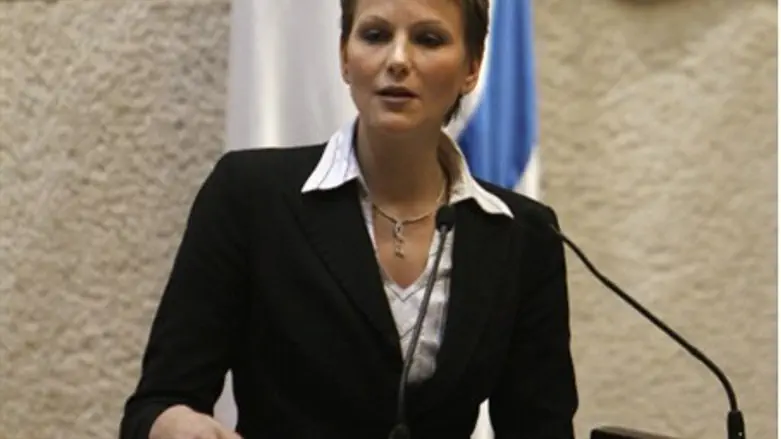
MK Anastassia Michaeli (Yisrael Beiteinu) said on Tuesday that there is support among the Israeli public for her proposed “muezzin law”, that would require mosques to temper the prayer announcements made by muezzins at Islamic prayer times, but clarified that her bill does not intend to target any specific group.
Michaeli made the comments after having visited the cities of Lod and Ramle, where a mix of Jews and Arabs live, in order to assess firsthand the damage caused by public address systems.
In Lod, she visited the community center located in the city’s Ganey Aviv neighborhood, where many residents told her about the disturbances caused by the noise emanating from the mosques.
In Ramle, Michaeli met Mayor Yoel Lavi who expressed his support for the law and said he would promote it within the municipality. She later explained to residents of both cities that the law is meant to improve quality of life and is not intended to target any specific religion.
“I am aware of the image this bill has received,” she said. “The term ‘muezzin law’ is inaccurate and has devastating consequences. If we let the term ‘muezzin law’ dictate the pace we turn the law from a matter of quality of life to a first rate political circus.”
“The bill is simple,” added Michaeli. “When a place of prayer becomes a nuisance to those around it, anyone who will not consider the way a civilized country should run would have to listen to the letter of the law. There are many simple options to regulate public address systems, such as directing the system into the community, using computer applications or simply lowering the volume. The solution is not the problem. Our problem is that half of the mosques in the country are working without a license, making their own laws and not operating out of religious interests but merely to be defiant of the law.”
Michaeli concluded, “If the bells of a church or a mass prayer in a synagogue become a nuisance their fate will be just like the call of a muezzin. We must not turn this issue into a war of cultures. If ‘enlightened’ countries such as Iran, Saudi Arabia or Syria can regulate the public address systems of mosques, so can Israel.”
While most members of Michaeli’s party support the law, it is not clear that most of the other factions in the coalition do. Many government officials, including Knesset Speaker Reuven Rivlin, have expressed opposition, fearing the reaction of Arabs to the law.
At issue, for the most part, is the mosques’ early morning call to prayer, the Fajr, which is called at least a quarter hour before sunrise, when most people are still sleeping. Many Israelis have complained about the call to prayer, which is often broadcast very loudly with the help of speakers and amplifiers, especially in cities with large Arab populations like Jerusalem.
The government has already postponed a discussion on whether or not to support the law. The delay was made at the request of Prime Minister Binyamin Netanyahu.
Ministers Dan Meridor, Michael Eitan, Limor Livnat and Benny Begin are reportedly opposed to the law, which leftists call "the law for muzzling Muezzins," and ministers Gideon Saar and Moshe Kachlon are reportedly also expected to vote against it.
Last Saturday, dozens of residents of the Arab city of Tayibe demonstrated against the proposed law.
